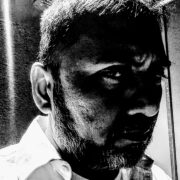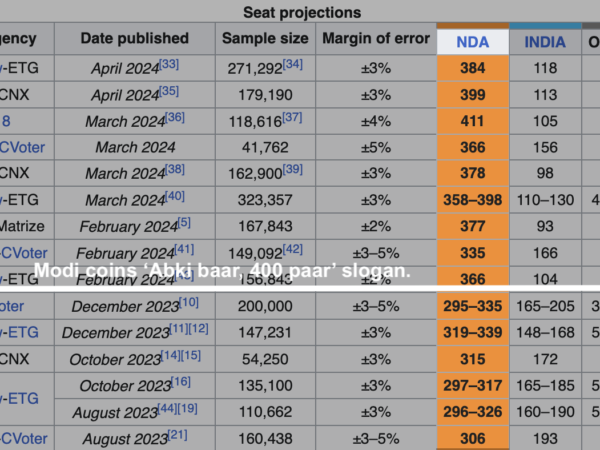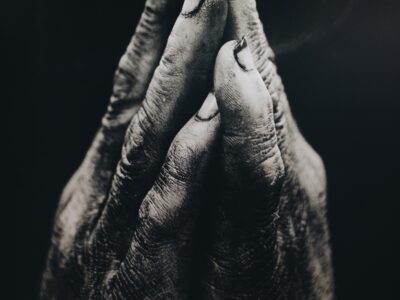Just before it rains, Pune sees a large procession of devotees on their annual 21-day-long pilgrimage (mainly from Alandi and Dehu) to the temple town of Pandharpur, carrying the symbols (footwear called ‘paduka’) of their saints, Dyaneshwar and Tukaram, in ornamental palanquins, singing and chanting, on their way to see their god, Vithoba (a form of Vishnu/Krishna), who, along with his consort, Rakhumai, resides in the temple on the banks of the River Chandrabhaga.
The ‘Wari’ (the pilgrimage) takes place as the farmers finish their farm work and are done with ploughing, cleaning, and sowing for a fresh crop, and as the monsoons come in from the south-west. The weather is cool with some drizzles or a quick shower here and there, and the entire procession is well-organised, disciplined, safe, and much fun, even for the non-believers to partake. Everyone is friendly and welcoming, and I have walked a couple of times (not the entire distance, but a small part) myself when I was much younger.
This has been a tradition for 800 years and while it has undergone some modernisation along the way, most of it remains authentic to the origins that have their roots in the Bhakti movement (the ‘bhakti marga’, or the path of devotion being one of the three paths to reach spiritual salvation as per the Bhagwad Gita, along with ‘karma marga’, the path of action, and the ‘dyana marga’, the path of knowledge).
I do not wish to go into much depth here except to narrate a story about these three paths that a (much older) Dyaneshwari-quoting, devout neighbour once told me, back in 1998, when I was just turning to atheism. It goes something like this.
There are, according to the guru in the story being told, three types of people:
The first are the doers. They are like ice. They see the world in black & white, live a simple life, and all that they need to reach salvation is to be. So, if they are told, ‘Go walk to Pandharpur, and you will be able to see the Lord’, they will walk. And they will indeed witness their god. Like ice, they need nothing to become one with their surroundings. You simply leave ice out and it melts.
The second are the thinkers. They are like salt. They see the world in greys and are always unsure and confused about right and wrong, and like salt needs water to dissolve in, they need a guru for them to see the light.
The third type are the intellectuals (‘…like you,’ said my then-neighbour) who see everything in technicolour. They are very difficult to teach because they refuse to learn except from the highest experts in the field. They need evidence, they need convincing, they need work. They, he said, are like pearls who need a divine swan to digest them (the myth in Hindu philosophy is that swans only eat pearls).
Of these, the first (the ones that are like ice) are the happiest.
Having walked with the Warkaris in my youth and having interacted with them over the years of my stay in Pune (did you know that during this pilgrimage, they all call each other ‘Mauli’, literally meaning ‘mother’, which is the name they have given lord Vitthal, meaning that each of the pilgrims is the manifestation of their beloved Vithoba?), I’d say that if, at gunpoint, I had to choose a religion, the Bhakti movement, with its saints like Tukaram, Basava, Mirabai, Namdev, and Kabir, amongst others, with its emphasis on love and inclusiveness, with its erasure (at a fundamental level) of caste and class, with its beautiful poetry and literature, with its fascinating philosophy, would not be a bad choice.
But it is the conversation I had with Kym this morning, when we were turned back from a junction by the traffic police which was facilitating the Wari, and had to finish a quick run and go home for Milkmaid-bread (something Kym’s Abhi chacha, her Ajoba, and her father absolutely loved to have, and is also our personal favourite snack), that I wanted to record here.
Kymaia (munching on her Milkmaid-bread): ‘Where are they walking to, Baba bear?’
Me: <Explains the Wari and the Bhakti movement in brief.>
Kymaia: ‘So what are they walking for?’
Me: ‘To see their beloved lord, Vithoba, in Pandharpur.’
Kymaia: ‘And what will they ask for?’
Me: ‘I don’t know. Maybe a good monsoon? Maybe a bumper crop? Maybe a healthy life? Something along those lines, right?’
Kymaia (after a thoughtful bite): ‘I am not sure about the monsoon or crop, Baba bear. But with all this walking, I think a healthy life is probably a more doable ask, isn’t it?’















![Mr Baba: 'Would you like to take off the backpack now that you've been downstairs for like 30 minutes?'
Ms Kym-Kym: 'I like it like this. You should try it. It's very comfortable.'
Mr Baba: [Pulling on his backpack] 'Hmmm, you're right. That's rather snug.'
Ms Kym-Kym: 'Twinning! Yay!'
#LuckiestManAlive #BearFamily](https://scontent-lax3-1.cdninstagram.com/v/t51.29350-15/416920031_3373151642830342_6696851954454537274_n.webp?stp=dst-jpg&_nc_cat=105&ccb=1-7&_nc_sid=18de74&_nc_ohc=ZMLmjPdSAEUAX8nnJex&_nc_ht=scontent-lax3-1.cdninstagram.com&edm=ANo9K5cEAAAA&oh=00_AfB0olvUVmnenPKd2wCllMDehg5gzDgAbc4BDsGLqIm6pA&oe=65BA4561)

![Kym: 'Mr Baba, can I tell you something wierd? You can actually get tired from doing nothing!!'
Me: 'It is called boredom.'
Kym: 'Noooo. I mean, like physically tired.'
Me: 'One can get tired and sleepy due to boredom. I remember reading about it somewhere. Let's find out.'
[Some Googling later]
Me: 'It says here that "A new paper published in the journal Nature Communications finds that a part of the brain that is associated with motivation and pleasure - the nucleus accumbens - also can produce sleep. The new findings may explain why we have the tendency to fall asleep in the absence of motivating stimuli, i.e., when bored." Isnt it interesting?'
Kym: 'I already knew that. Why do you need to research things we already know?'
Me: [Finding a subject worth talking about now]: ' Ah well, that's what we'll talk of tomorrow on your morning run. It's very interesting the way science is done and our understanding of the universe is expanded.'
Kym: 'Can we talk of unicorns instead?'
Me: 'Sure. How do you know they exist? That's an interesting question too that you can use the scientific method to answer.'
Kym: 'Do they have to exist for us to talk about them? We can just pretend they do for an hour and have fun.'
Me: [Laughing] 'Yes, sure. We can do that too.'
#BabaBabyConversations #BearFamily #KymAndI](https://scontent-lax3-1.cdninstagram.com/v/t51.29350-15/416410840_383105434396466_2267910263456009774_n.webp?stp=dst-jpg&_nc_cat=104&ccb=1-7&_nc_sid=18de74&_nc_ohc=LIozs445JFcAX_48wGC&_nc_ht=scontent-lax3-1.cdninstagram.com&edm=ANo9K5cEAAAA&oh=00_AfDQ2qbb0yO_wUmLj_L0ZxF61eDdwlIN-vyrd8GZe_pBMQ&oe=65BAFA57)










